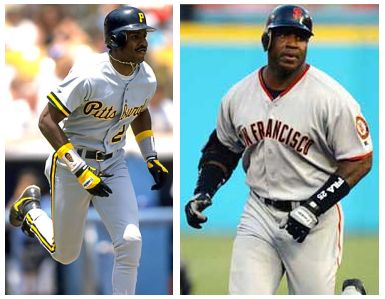How do we approach the reoccurring issue of performance-enhancing drugs?

I remember looking up to sport stars like Mark McGuire and Barry Bonds when I was younger, thinking that when I grew up, I wanted to be just like them. As I got older and began participating in endurance sports, I found myself drawn to figures like Lance Armstrong and Bernard Lagat. While I knew that sports would never be a career for me, I did see these people as more than athletes. I felt like they were role models.
They would win competitions, conduct themselves beautifully with the media and seemed to be overall, well-rounded individuals. Now, while writing this article, only one of the four athletes I've loved has been cleared to compete in sports ever again. The others, of course, have all been caught doping, tainting their legacy and tainting their sports alike. With the use of performance-enhancing drugs (PEDs) seemingly becoming more prevalent, the issue of how to curb cheating in sports has been brought to light. How do we stop PEDs from infiltrating more sports and tainting more athletes and legacies?
One interesting take on curbing PED culture is given to us by Bill Simmons over at Grantland. Simmons says how, "There is no such thing as 'the benefit of the doubt,' anymore. Not in sports.” This statement is in regards to miraculous comebacks in the NFL in 2013, and the notion how we can’t just take this at face value anymore due to PEDs. In his article, he refers to stats in baseball that are entirely non-existent due to the list being inhabited by drug users. Simmons believes we can no longer have the notion of “ innocent until proven guilty,” coming to the conclusion that we are no longer at a stage where we can tip-toe around issues.
Because of the area that sports stars have taken us, it seems that the only direction is to believe that miraculous comebacks, huge improvements and otherworldly performances are, in fact, the result of drugs. If they weren't then why would it matter to a sports star to take a drug test? Simmons’ cynicism in the article preaches the point that we are at desperate times in sports, and they will most certainly lead to desperate measures.
So how do we proactively attack drug cheats? Simmons’ article did explain that doctors are saying, “Hey, a few can have regular blood samples, it is a thousand times easier to catch cheaters.” While this is a start, the folks over at Let’s Run have taken the issue even further.
In their regular “The Week That Was,” column, vocal opponents of PEDs Rojo and Wejo get real with the drug cheating and how to stop it. They start their article talking about how in the 2000 Sydney Olympics a new test for PEDs had been developed, but instead of doing it as a surprise, the IOC let it be known that athletes would be tested. This, of course, allowed the drug cheats to do whatever it took to get the PEDs out of their system, or use in untraceable dosages. While the article goes on to talk about a “new breakthrough,” in drug testing, it’s their push to get Nike to start aiding in the fight against cheaters that is so interesting.
Let’s Run believes that Nike can be a game changer in the drug-cheat fight if they would put in the time and (relatively minuscule) money. Creating a campaign around "Just Do it Fairly,” if Nike gave .1 percent of each sale to anti-doping agencies like WADA and USADA, that would generate $20 million for testing, research and battling cheating in sports. WADA’s entire budget is only $26 million. While Nike spends over $2 billion each year on advertising, it seems only fair that a company who makes money off of sports, and has been villainous in sponsoring cheaters, could give back to help create a culture of true athletics.
What both of these articles and analysts are saying is that private conversations of concerns over athletes using PEDs need to become pubic. We are no longer at a point, as sad as it is to say, where we can fully trust anyone doing something miraculous in sports. While it isn't to say that sport miracles are a thing of the past, drug testing needs to be a regular part of sports. On top of that, fans, officials, players, owners and corporations need to be cooperative in testing. No more bogus tests, no more leaking information about what type of tests athletes will see in the future, and no more planned tests either. Regular, unplanned testing needs to be incorporated into sports.
I hate being a cynic, but I’m also tired of being a sucker. Until sports stars stop using PEDs, testing and harsh penalties need to become ubiquitous. Those who are clean should have no problem with pissing in a cup.
Photo courtesy of Barry Bonds Steroids

1 comments